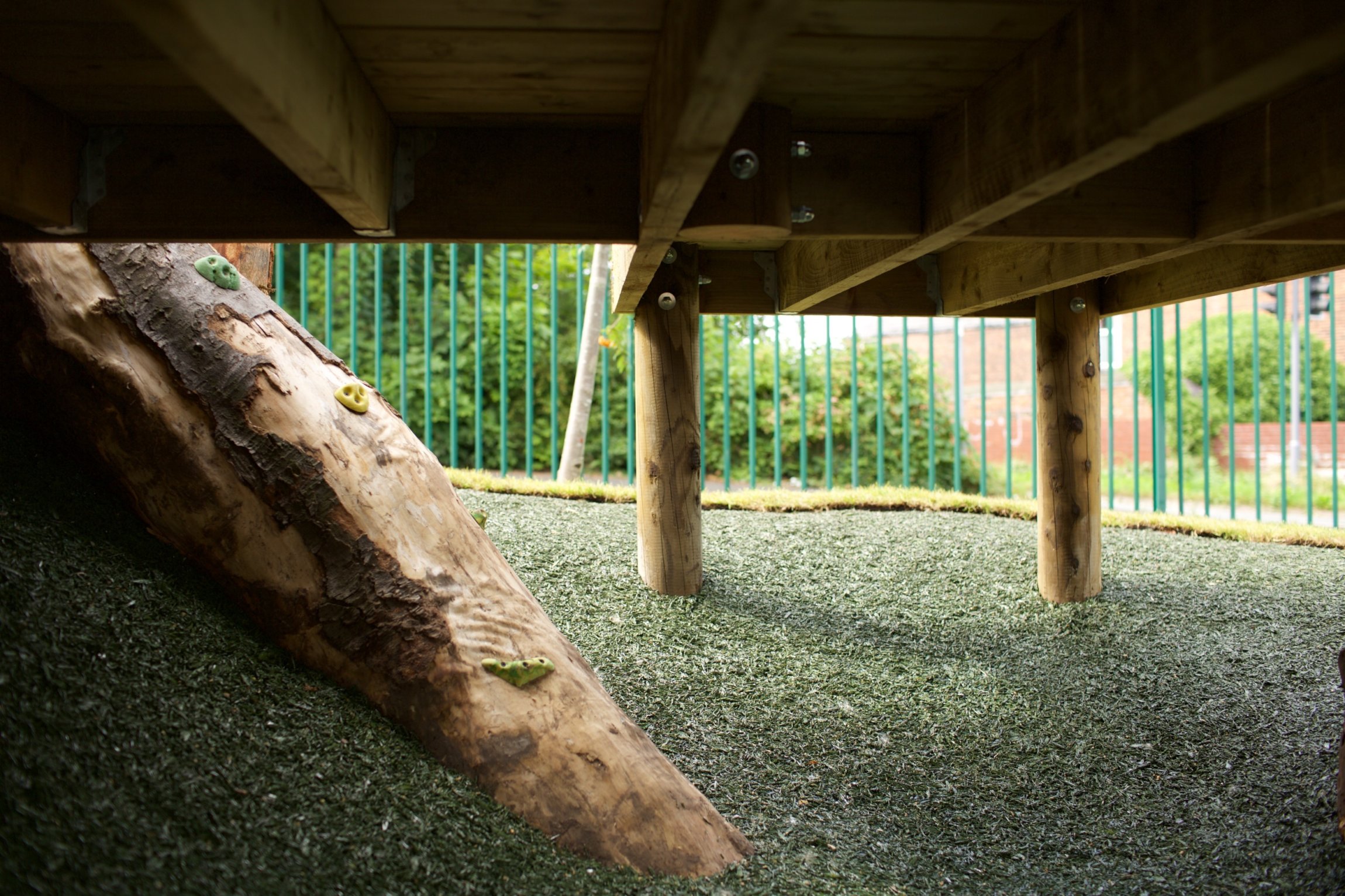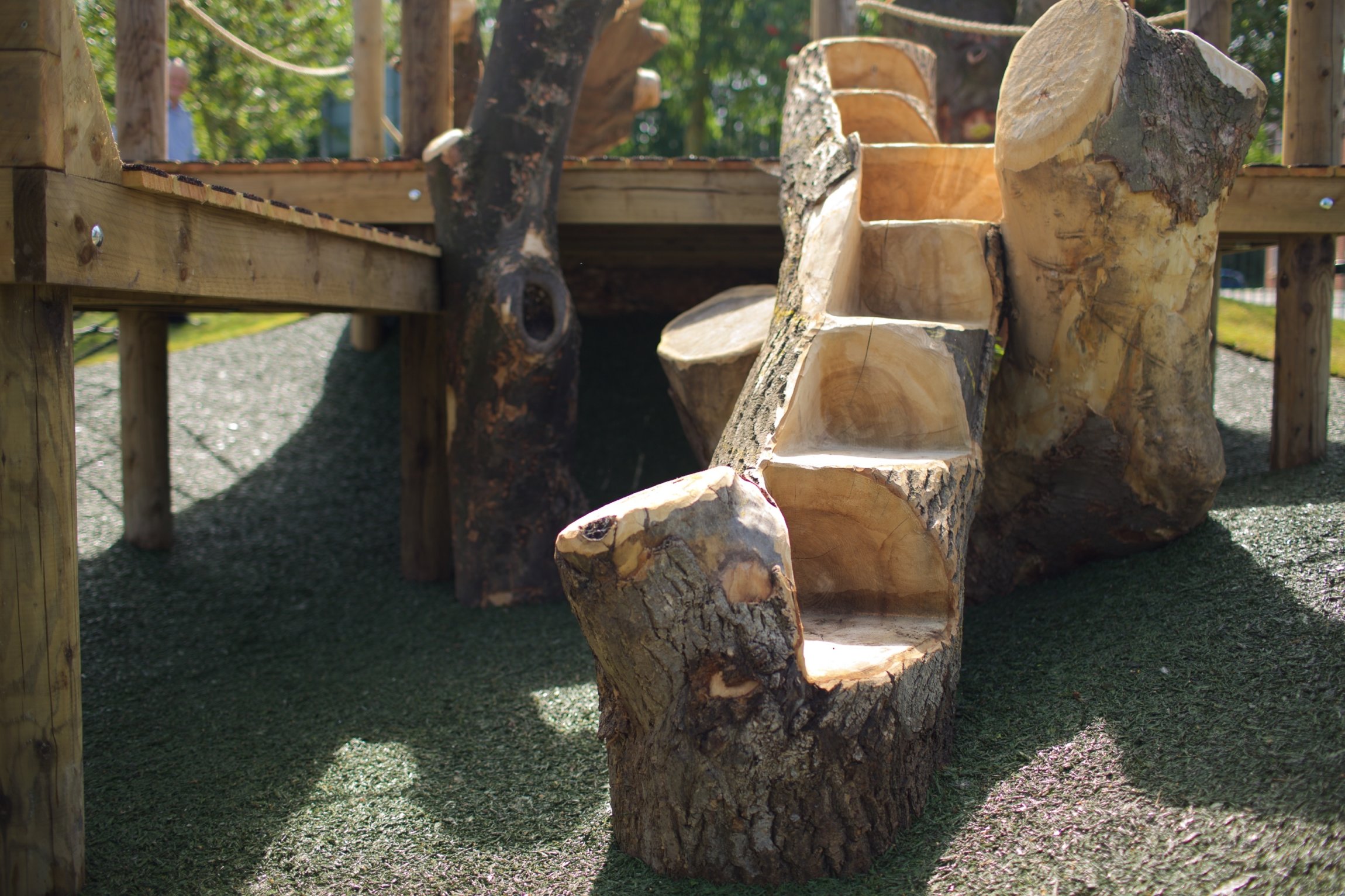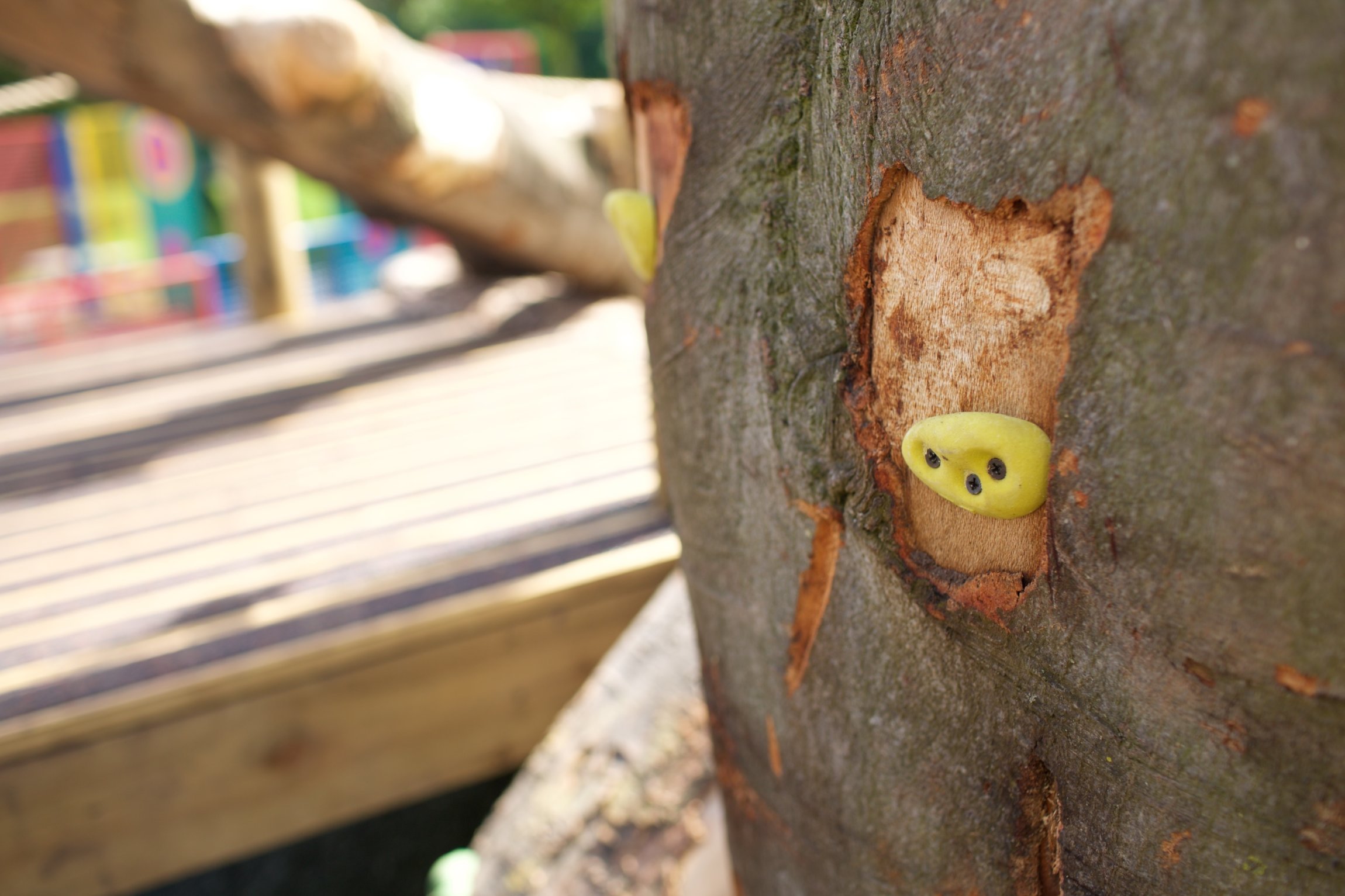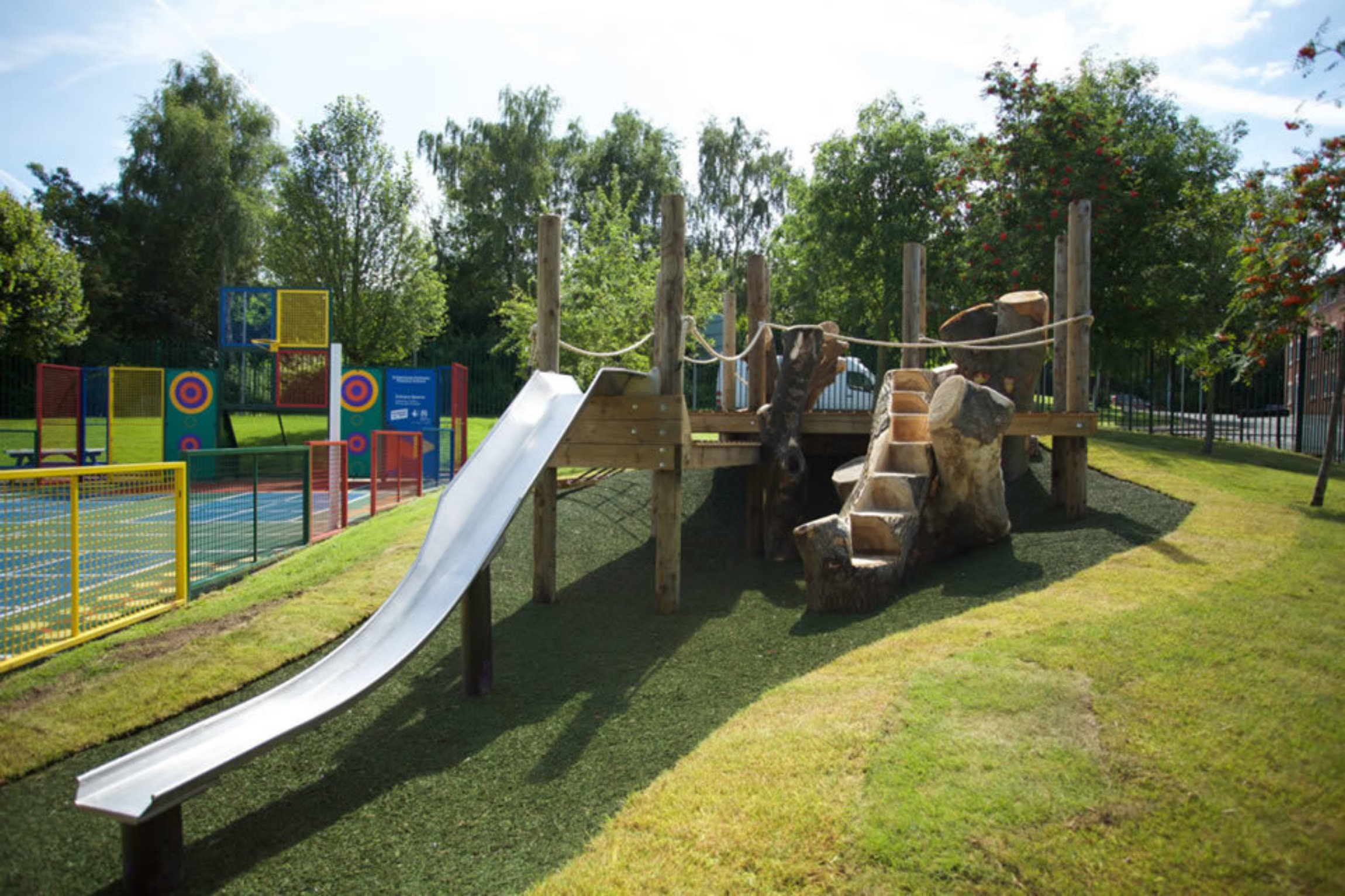Project description and aims
 Great Grounds have recently designed and built a natural climbing frame for St Edwards Catholic Primary School. The school initially intended to commission a climbing frame made from recycled plastic and following a consultation it was decided that an alternative solution would create significantly more learning opportunities. We positively encouraged the school to consider the use of more natural materials such as logs and that using these materials would enable the children to connect to nature, encouraging natural investigation. We aimed to use as many natural materials as possible to create an enhanced range of learning opportunities.
Great Grounds have recently designed and built a natural climbing frame for St Edwards Catholic Primary School. The school initially intended to commission a climbing frame made from recycled plastic and following a consultation it was decided that an alternative solution would create significantly more learning opportunities. We positively encouraged the school to consider the use of more natural materials such as logs and that using these materials would enable the children to connect to nature, encouraging natural investigation. We aimed to use as many natural materials as possible to create an enhanced range of learning opportunities.
The natural climbing frame features seven big logs that are connected to a timber framework with a slide at one end. There are climbing grips attached to two vertical logs and steps carved into one of the logs. In addition, there is a net traverse and four logs stacked to create a natural climbing area all connected by a wooden platform with two levels.
There is a space underneath for the children to play, investigate, den-build and gives alternative access to one of the climbing logs. The climbing frame is intended to be challenging to the children, continually encouraging development to the next level, whilst helping the children to use their imagination for role-play games that inspire cooperative playing.

Intended positive outcomes
Today’s children and families often have limited opportunities to connect with the natural environment. In the past decade, the benefits of connecting to nature have been well documented in numerous scientific research studies and publications. Collectively, this body of research shows that a child's social, physical and cognitive development are positively impacted when they have daily contact with nature. Positive outcomes include the following:

- Supports multiple development domains.
- Nature is important to a child's development in every major way - intellectually, emotionally, socially, spiritually and physically.
- Supports creativity and problem solving. Studies of children in schools found that children engage in more creative forms of play in their green areas, they also played more cooperatively.
- Enhances cognitive abilities. Proximity to, views of, and daily exposure to natural settings increases children’s ability to focus and enhances cognitive ability.
- Improves academic performance.
- Reduces Attention Deficit Disorder (ADD) symptoms. Contact with the natural world can significantly reduce symptoms of attention deficit disorder in children as young as five years old.
- Increases physical activity. Children who experience school grounds with diverse natural settings are more physically active and more aware of nutrition.
- Improves eyesight. More time spent outdoors is related to reduced rates of near-sightedness, also known as myopia, in children and adults.
- Improves social relations. Children will be smarter, better able to get along with others, healthier and happier when they have regular opportunities for free and unstructured play in the outdoors.
The majority of children are in childcare or school settings for extended periods of time, often eight to ten hours per day. This makes greening their environment by adding natural elements vital to their overall health and functioning. Naturalising outdoor learning environments means bringing back trees, shrubs, perennial plants, vines, and edible plants for the children's enjoyment and healthy development.
The climbing frame also provides children with the chance to develop and manage risk and challenge. Risk and challenge is imperative for a child's development and is fundamental for lifelong skills. Risk and challenge is valued as contributing to children’s motor skills, self-confidence, social interaction, language, communication, curiosity, fantasy, concentration, independence and knowledge. It can also create less conflict than indoor activities and is enjoyed more by children.
In a challenging environment children will be able to test their abilities, learn from their mistakes and stretch themselves further to develop their physical and mental skills.

Links to curriculum
Mathematics - children can measure height, length, mass and area of the climbing frame. They can also calculate the speed of different objects moving down the slide, look for shapes and use fractions.
Geography - children can identify where the trees and materials have come from and use maps to locate the different places. They can also use eight points of a compass, four and six-figure grid references, symbols and key (including the use of Ordnance Survey maps) to build their knowledge of the United Kingdom and the wider world.
Science - children can look at the trees and investigate the ring growth and describe how living things are classified into broad groups according to common observable characteristics and based on similarities & differences. Observe and describe how seeds and bulbs grow into mature plants, find out and describe how plants need water, light and a suitable temperature to grow and stay healthy, identify and describe the functions of different parts of flowering plants: roots, stem/trunk and leaves, investigating the way in which water is transported within plants.
Apprenticeships - children can learn about the different trades that were involved in creating the climbing frame such as a tree surgeon, joiner and landscape gardener. They can also learn about the different tools used and how the tradesmen developed their skills.
If you would like to find out more, contact our Environment Coordinator James Smith by email j.smith@GreatGrounds.co.uk

